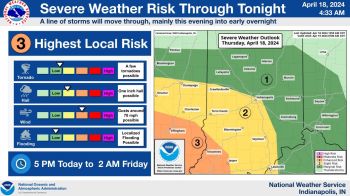INDIANAPOLIS (WISH) — The final fight of the 2020 election is set for Wednesday afternoon. Congress will meet at 1 p.m. on Jan. 6, to certify the electoral vote. However, a number of Republicans are vowing to challenge the count, including three Indiana lawmakers.
Senator Mike Braun, Representative Jackie Walorski, and Representative Jim Banks said they will vote against certifying the election results on Wednesday unless there is an audit. Representative Victoria Spartz’s office said she is reviewing all of the relevant information and will make a decision ahead of the vote.
According to federal law, Congress must meet for lawmakers to open sealed certificates that contain a record of each state’s electoral votes. Then lawmakers from both the House and Senate will read the results out loud and the vice president will declare the winner. Typically, the certification process is more or less a formality, but this year there will undoubtedly be some delays.
“It is likely to delay the process. It is going to weaken American’s trust in our electoral institutions and that is certainly problematic,” said Steven Webster, an assistant professor of Political Science at Indiana University.
Webster said what is problematic is that the process is being taken over by politics.
A group of at least 12 Republican senators, including Indiana Senator Mike Braun, plan to vote against the certification of certain battleground states. In a statement, the senators said they are asking for a commission to conduct an emergency 10-day audit of the election results in certain swing states. Many Republican members of the House have also pushed for this, including Indiana’s U.S. Representative Jackie Walorski and Representative Jim Banks.
“This push, this criticism, this want for the audit certainly makes this argument that certification shouldn’t just be done yet,” said Laura Wilson, an associate professor of Political Science at the University of Indianapolis.
Wilson said it is democratic to question and challenge an election, however, the Republicans all point to election fraud as the basis of their arguments. So far, no courts have found such fraud.
“Certainly, to disagree with an outcome after those questions and challenges have been exhausted would undermine the process itself,” said Wilson.
“There have been plenty of court cases that have tried to overturn the results of various swing states. All of these court cases have been dismissed as not holding merit,” said Webster. “There really has been no evidence of fraud certainly on any level that would change the election outcomes in any meaningful way and so that is why I think this is largely driven by politics rather than by procedure.”
When it comes to the procedure, the certification of the Electoral College happens in a very systematic manner. The certificate is read from each state, any member of Congress can object to the state’s vote, but the objection must be in writing and signed by both a member of the House and Senate. Then a simple majority vote would determine the outcome.
“This is unlikely to change the results of this election. Joe Biden will be in the White House on Jan. 20 and that is simply because Democrats have enough power in Congress to prevent any sort of meaningful change to occur here,” said Webster.
Back in 2017, 11 members of Congress verbally objected to Donald Trump’s certification. However, this hasn’t happened in written form since 2005.













